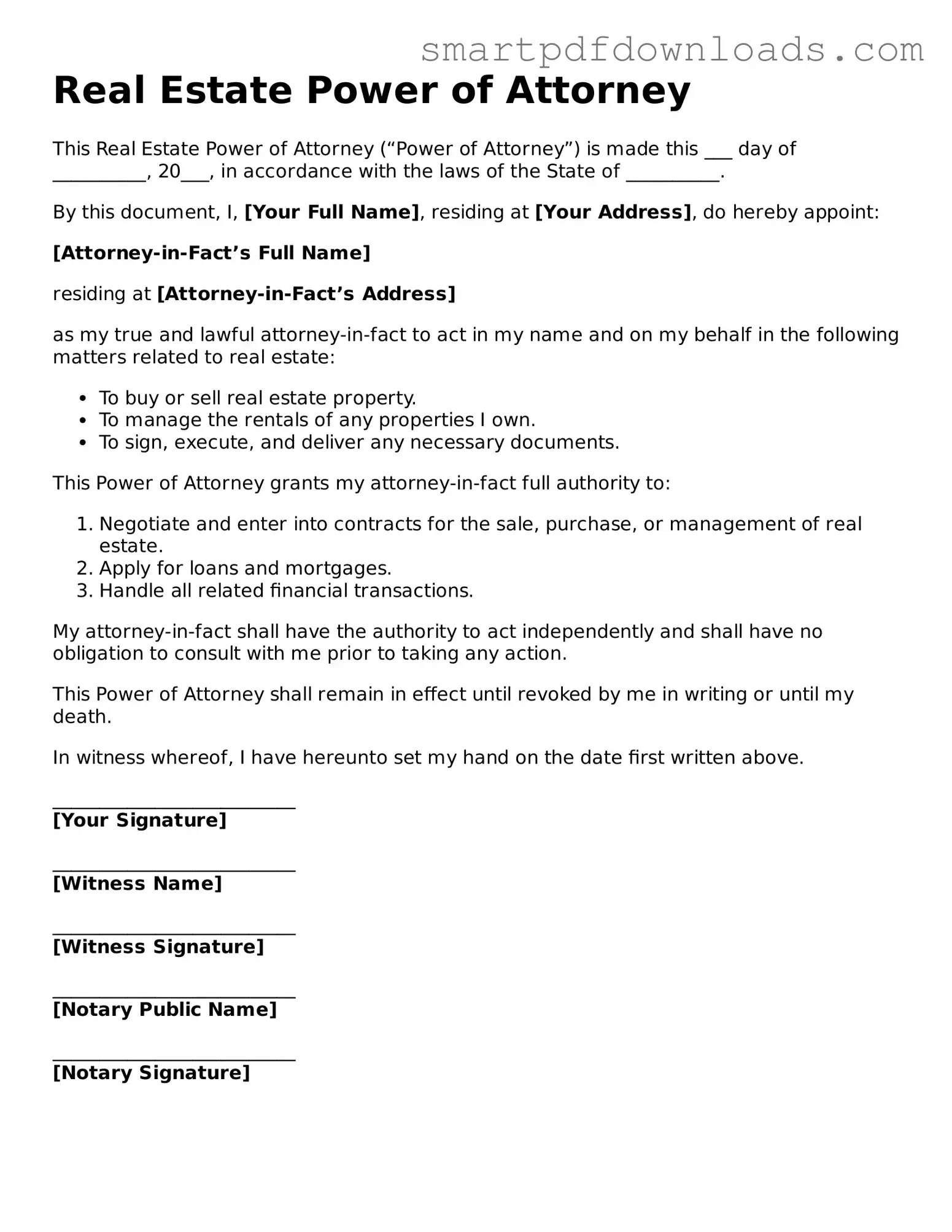Free Real Estate Power of Attorney Form
A Real Estate Power of Attorney form is a legal document that allows one person to authorize another to act on their behalf in real estate transactions. This form grants the designated individual the authority to make decisions regarding property sales, purchases, and management. Understanding this document is essential for anyone looking to streamline their real estate dealings while ensuring their interests are protected.
Edit Real Estate Power of Attorney Online

Free Real Estate Power of Attorney Form
Edit Real Estate Power of Attorney Online

Edit Real Estate Power of Attorney Online
or
⇓ PDF File
Finish the form and move on
Edit Real Estate Power of Attorney online fast, without printing.